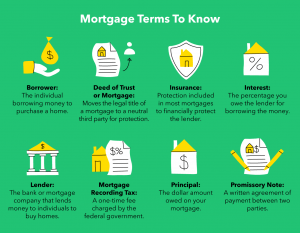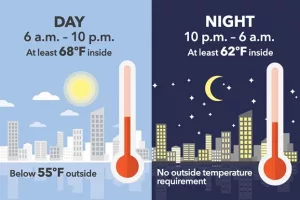The Complete Guide to the NYC Mortgage Recording Tax
Go Back To Previous Page The NYC Mortgage Recording Tax (MRT), a.k a. Mortgage Tax in NYC, equals 1.8% for loans below $500k and 1.925% for mortgages over $500k. As a result, the MRT is the highest buyer  closing cost in NYC. Authorities calculate the Mortgage Recording Tax based on the loan, not the purchase price. We will give you strategies on how to avoid mortgage tax in NYC. However, this NYC Mortgage Recording Tax does not apply to co-op apartments. You can estimate your MRT bill using NestApple’s Interactive Closing Cost Calculator. To be precise and calculate this closing cost, this MRT represents:
closing cost in NYC. Authorities calculate the Mortgage Recording Tax based on the loan, not the purchase price. We will give you strategies on how to avoid mortgage tax in NYC. However, this NYC Mortgage Recording Tax does not apply to co-op apartments. You can estimate your MRT bill using NestApple’s Interactive Closing Cost Calculator. To be precise and calculate this closing cost, this MRT represents:
- 2.05% (for loan sizes under $500,000)
- 2.175% for loan sizes of $500,000. However, the bank pays 0.25% of the MRT. Therefore, your effective MRT rates as a buyer in NYC are:
- 1.8% for loans under $500,000 and
- 1.925% for loans of $500,000 or more.
- Commercial properties and four or more family houses have a higher Mortgage Recording Tax rate of 2.8%.
You can reduce the amount of the MRT by getting a Purchase CEMA loan from the seller. Fortunately, the MRT does not apply to co-op in NYC, and the tax only applies to mortgages on real property.
Remember, co-ops are not ‘real property.’ It is one reason why closing costs are significantly higher for condos than co-ops in NYC.
What Is the Mortgage Tax in NYC?
It is a transaction tax levied by New York City and State on all new mortgages.
The MRT in NYC is a percentage of your loan size and applies to new loans for new property purchases and refinancings. It only applies to condos, houses, multi-family properties, etc.
loans for new property purchases and refinancings. It only applies to condos, houses, multi-family properties, etc.
The MRT is not applicable for loans backed by co-op apartment shares.
Furthermore, the MRT only applies if the purchaser uses financing. In other words, no tax is due for all cash purchases made without a mortgage.
How much Is the Mortgage Tax in NYC?
MRT rates vary depending on the size and classification of the mortgage. It consists of a tax for the City and another for the State.
- Less than $500,000: 2.05% (includes a 1% New York City tax)
- 1- to 3-family houses and individual residential condo units with a mortgage of $500,000 or more: 2.175% (includes a 1.125% New York City tax)
- Other mortgages with a balance over of $500,000: 2.8% (includes a 1.75% New York City tax)
There are MRTs in other cities and counties. Nevertheless, the Mortgage Recording Tax in NYC is much higher than in other counties in New York. For example, the total MRT Tax in Westchester County, NY, is only 1.3%.
The MRT in other New York counties is between 1% and 1.25%. In some counties, such as Ulster and Madison, the MRT is as low as 0.75%. You can check these tax tables yourself on Form MT-15.
Mortgage Lender Contribution
The bank will typically pay 0.25% of the total MRT. For commercial deals and “hard money” loans, the bank will usually not pay for any Mortgage Recording Tax.
Who Pays the MRT in NYC?
The buyer always pays the MRT in an NYC real estate transaction. This tax applies to actual property purchases, such as condos vs. co-ops. When buying a coop in NYC, there is no MRT, as the loan is not a mortgage. By definition, a mortgage must get secured by real property.
A stock certificate and proprietary lease secure a co-op apartment loan.
Not All Closing Costs Are Negotiable
Unlike other closing costs in NYC (such as transfer taxes or the Mansion Tax), buyers can’t get the seller to pay for their MRT. The amount of Mortgage Tax in NYC depends on the decision to borrow. Again, if the buyer purchased all cash, there wouldn’t be any Mortgage Recording Tax. As a result, a buyer can’t ask a seller to pay for this MRT since this amount depends on the financing decisions.
A sponsor can sometimes apply for a rebate of the MRT they originally paid to purchase the property. For instance, if a buyer of a new construction unit pays $10,000 in Mortgage Tax in NYC. The sponsor can fill out an affidavit so that $8,000 gets credited back to them at closing.
The balance of $2,000 would go to the IRS via the title company. If you find out that the sponsor is getting this credit back, keep this in mind.



